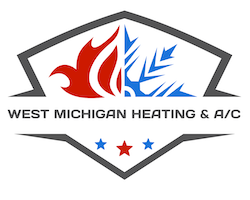
Significant changes are on the horizon for the heating and cooling business! Cooling systems transitioning from R-410a to newer refrigerants like R-454B refrigerant and R-32 refrigerant will be arriving in 2025. These new coolants are engineered to be more beneficial to the environment and meet revised regulations about global warming. But what does that mean for your current HVAC system and future services?
This transition will reduce the environmental footprint of our air conditioning systems. Starting with 2025, new AC systems will utilize an alternative class of refrigerants that are more compatible with climate goals. If you're considering getting an AC replacement soon, this is the perfect time to explore how these updates can impact your home's comfort.
Why Are They Phasing Out R-410a for New HVAC Refrigerant?
For years, R-410a was the go-to refrigerant for residential air conditioners because it worked so well. But studies revealed that R-410a still negatively impacts global warming. In response, the Environmental Protection Agency (EPA) enacted a plan back in 2021. The industry will steadily eliminate R-410a to introduce refrigerants that are better for the environment.
The HVAC industry has made shifts like this before. When the industry moved away from using R-22 (commonly called Freon) to R-410a, homeowners like you had to adapt. And in the same way, this shift will influence how systems are constructed as well as the best practices for HVAC maintenance. Both property owners and HVAC technicians need to get ready for these new refrigerants if they want to continue enjoying the most reliable, most economical cooling possible.
Which New Refrigerant Is Replacing R-410a?
The coming refrigerants are categorized under the new "A2L" classification and include the newest R-454B refrigerant and R-32 refrigerant coolants. They're designed to offer the same powerful cooling while significantly reducing their global warming potential (GWP) compared to R-410a.
R-454B refrigerant is believed to be especially useful due to its GWP being approximately 78% lower than R-410a. Although R-454B refrigerant is believed to be more flammable than R-410a, updates to system manufacturing and maintenance practices will ensure servicing is just as safe to perform. In addition, modern cooling systems using R-454B refrigerant are significantly more energy efficient, leading to considerable savings on energy bills over time, especially if you keep up with routine HVAC maintenance.
This switch isn't simply about swapping out the refrigerant—it impacts the whole HVAC system because the properties of R-454B refrigerant make it not suitable for use in older systems. Ultimately, every home and business using R-410a will need to transition to one of the new systems.
R-410a Replacement: How Can I Prepare to Change to New HVAC Refrigerants?
Changing to the new refrigerants won't be as simple as substituting what's used in your current HVAC system. That's because the different properties of R-454B refrigerant and R-32 refrigerant make existing R-410a systems incompatible. But rest assured—you can keep using your current R-410a system for now. Just remember that as time progresses, the expense of repairs and tune-ups will rise as R-410a becomes less available.
Anticipating the changes is the optimal way to stay on top of things. If your AC system is currently nearing the end of its lifespan, this is the best time to consider investing in a newer model that uses the new R-454B refrigerant. Plus, the HVAC specialists here at West Michigan Heating & Air Conditioning Services can assist you in making the transition with flexible options for HVAC replacement financing.
What HVAC Refrigerant Does My Air Conditioner Use?
Uncertain which refrigerant your AC system uses? In general, you can easily find this information by examining the label on your outdoor unit. This label displays the type of refrigerant, the model number and numerous other details about your cooling system.
But if you can't read the label or can't find your user manual, don't worry! You can always call one of the expert technicians at West Michigan Heating & Air Conditioning Services to help you in determining this information. Get all the info you need by contacting us at (616) 319-1436.


